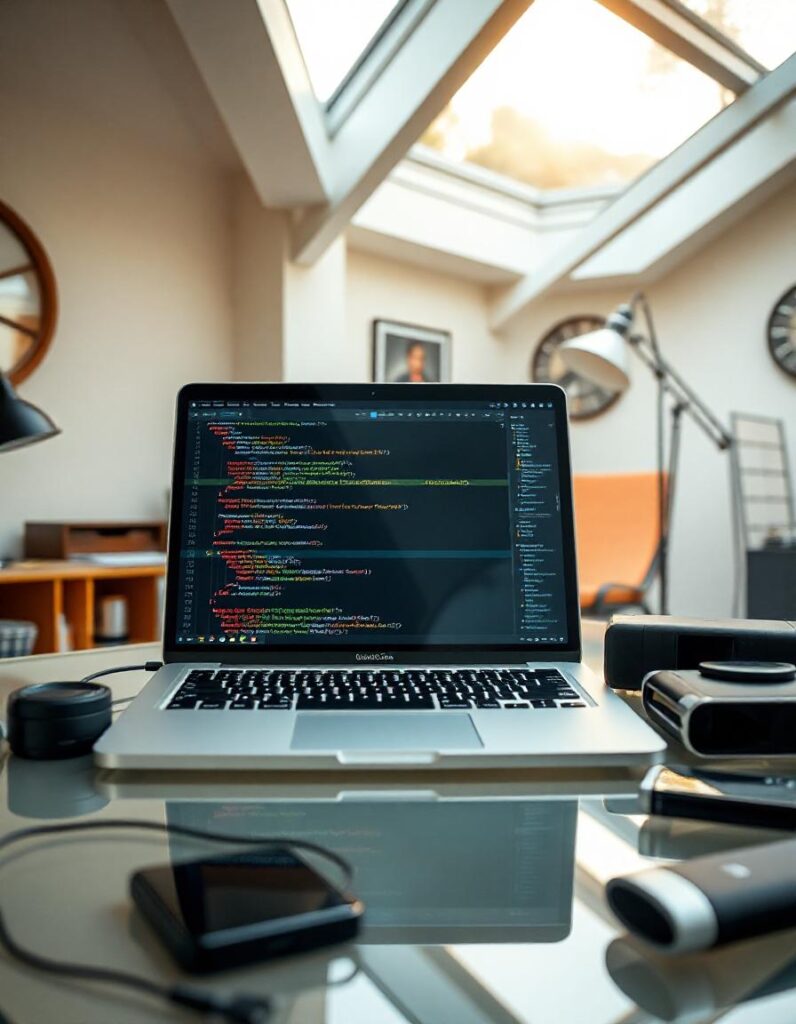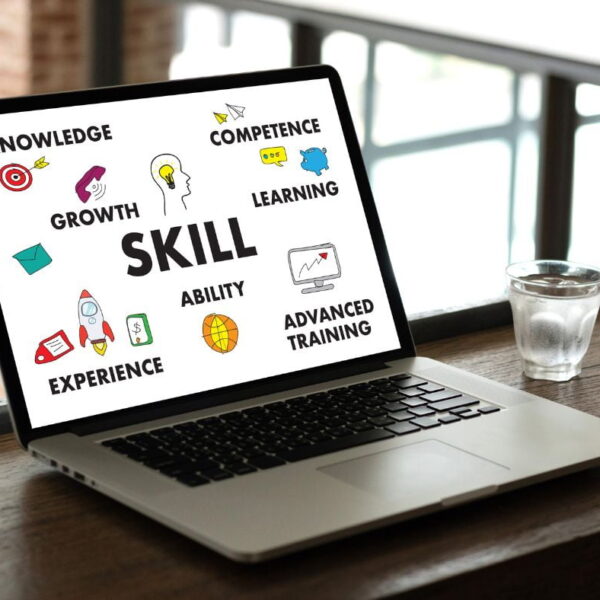What is Software Development?
Software development is like building a house, but instead of using bricks and cement, you use code. It involves creating, designing, and maintaining software applications that people use daily, from simple apps on your phone to complex systems like those used in hospitals or banks. For beginners, learning software development is like opening a door to a world where you can create almost anything to solve real-world problems or entertain others.
The Basics of Software Development
Before diving into the world of software development, it’s helpful to understand some foundational concepts. Think of these as the basic tools in your toolbox.
Programming Languages
Programming languages are like the different languages people speak worldwide. Just like you might use English to communicate in the UK or Spanish in Spain, different programming languages are used for different types of software development. Here are a few popular ones:
Java: Java is like the workhorse of programming languages. It’s used in everything from web development to building Android apps and even in big financial systems. If you want something stable and versatile, Java is a good choice.
Python: Python is like the universal language of coding. It’s simple, easy to read, and understand, making it perfect for beginners. You can use Python to build websites, analyze data, and even create simple games.
JavaScript: If you’re interested in building websites, JavaScript is your best friend. It’s the language of the web, allowing you to make websites interactive—think of it as the magic behind animations, pop-ups, and other cool features on websites.
Software Development Lifecycle (SDLC)
The Software Development Lifecycle (SDLC) is like a recipe that guides you through the process of making software. Just like following a recipe to bake a cake, developers follow the SDLC to ensure their software is tasty (or, in this case, functional and bug-free!). The main stages of SDLC include:
- Planning: This is where you decide what kind of cake you want to bake (or software you want to create).
- Analysis: Understanding the ingredients you need and how much time it will take.
- Design: Creating a blueprint or a cake design (or software architecture).
- Development: Mixing the ingredients and baking the cake (writing the actual code).
- Testing: Tasting the cake to make sure it’s good (ensuring the software is bug-free and works as intended).
- Deployment: Serving the cake to your guests (releasing the software to users).
- Maintenance: Fixing any issues if your guests find the cake too salty or sweet (updating the software to fix bugs and add new features).

Key Concepts in Software Development
As you begin your journey in software development, there are several key concepts to get familiar with:
Algorithms and Data Structures
Think of algorithms as the step-by-step instructions in your recipe book. They tell the computer exactly how to solve a problem. Data structures, on the other hand, are like the different types of containers in your kitchen (bowls, jars, boxes) that help you store ingredients efficiently. Together, they make sure your code runs smoothly, just like a well-organized kitchen makes cooking easier.
Version Control
Imagine working on a group project where everyone is writing on the same paper—chaos, right? Version control systems, like Git, are like Google Docs for code. They help developers manage changes, keep track of different versions, and ensure no one’s work is overwritten. It’s a must-have for any kitchen (or software team) to keep things organized and stress-free.
Integrated Development Environment (IDE)
An Integrated Development Environment (IDE) is like your kitchen workstation. It has everything you need in one place: your knives, chopping board, and stove (tools for writing and testing code). Popular IDEs like Visual Studio Code, PyCharm, and Eclipse provide all the features you need to cook up some great software.
Steps to Start Learning Software Development
Starting with software development can feel like learning to cook for the first time. It’s normal to feel overwhelmed, but with the right steps, you’ll be a master chef in no time.
1. Choose a Programming Language
Just like you wouldn’t try to master French, Spanish, and Japanese all at once, start with one programming language that is beginner-friendly, such as Python or JavaScript. Focus on learning the basics well before moving on to more complex recipes.
2. Learn the Fundamentals
Understand basic programming concepts like variables (think of them as ingredients), loops (repeating actions like stirring), conditionals (deciding if the dish needs more salt), and functions (like a set of instructions for a specific task, such as boiling pasta). These are the foundation of any programming language.
3. Build Simple Projects
Start by building simple projects, like making a cup of tea before moving on to a three-course meal. Try creating a calculator, a to-do list app, or a basic website. These projects help reinforce what you’ve learned and give you hands-on experience.
4. Explore Online Resources
The internet is full of free cooking classes (or coding tutorials)! Websites like Codecademy, Coursera, and freeCodeCamp offer courses that cover various programming languages and development practices. You can learn at your own pace and level up your skills step by step.
5. Join a Community
Joining a community is like having a group of fellow chefs who help each other out. Whether it’s getting tips on how to fix a broken cake (debugging code) or sharing recipes (code snippets), communities provide support and motivation. Websites like Stack Overflow and GitHub are great places to start.
Common Misconceptions About Software Development
“You Need to Be a Math Expert”
Many people think you need to be a math whiz to be a good software developer, but that’s not true! While some areas do require more math, many parts of software development are more about creativity and problem-solving. It’s like thinking you need to be a chemistry expert to bake cookies—you just need to follow the recipe and adjust as needed.
“You Must Memorize Everything”
Software development isn’t about memorizing every piece of code, just like cooking isn’t about memorizing every recipe. It’s more about understanding the ingredients (concepts) and knowing how to mix them to create a delicious dish (functional software). Don’t be afraid to look up syntax or consult documentation—it’s all part of the process!
Frequently Asked Questions (FAQs)
Q1: What are the best programming languages for beginners?
For beginners, Python and JavaScript are like the best ingredients to start with. They are easy to handle and versatile enough to make a variety of dishes (applications).
Q2: Do I need a degree to become a software developer?
No, you don’t need a degree. Think of it like cooking: you don’t need to go to culinary school to make a great meal. Many successful software developers are self-taught and have learned by doing.
Q3: How long does it take to learn software development?
Learning to cook (or code) takes time, and it varies for everyone. On average, with regular practice, you could start making simple dishes (basic applications) in 3-6 months.
Q4: What tools do I need to start learning software development?
Just like you need a kitchen and some basic utensils to start cooking, you need a computer and a text editor or an Integrated Development Environment (IDE) like Visual Studio Code to start coding.
Q5: How can I practice coding?
Practice coding by building small projects, solving coding challenges on platforms like LeetCode and HackerRank, and contributing to open-source projects on GitHub. It’s like trying new recipes and sharing your dishes with friends!
Conclusion
Learning software development is a bit like learning to cook—it takes time, patience, and practice, but it can be incredibly rewarding. Start with the basics, build your skills step-by-step, and don’t be afraid to make mistakes along the way. Remember, every great developer started as a beginner, just like every great chef started with their first dish. Happy coding!
Learn how to become a software developer Free
| Platform | Name | Paid / Free | Details |
|---|---|---|---|
| SkillShare | Paid | Get Offer | |
| FreeCodeCamp | Free | Learn More | |
| Coursera | Free | Learn More | |
| Udemy | Free + Paid | Learn More | |
| CodeAcademy | Free + Paid | Learn More | |
| W3 School | Free | Learn More | |
| HTML Dog | Free | Learn More | |
| Traverse Media | Free | Learn More | |
| Digi Nation | Free + Paid | Learn More | |
| YouTube | Free | Learn More | |
| Treehouse | Paid | Learn More | |
| Free + Paid | Learn More |
Learn how to become a software developer – Top YouTube videos
What is Software Development
This video provides a high level overview of Software Development.
Guide To Becoming A Self-Taught Software Developer
In this video I will go through my 9 suggested steps for becoming a software developer of any type without going to college or ...
Fastest way to become a software developer
This video breaks down the PRACTICAL strategy for breaking into software development. We cover: - Guidance for candidates ...





